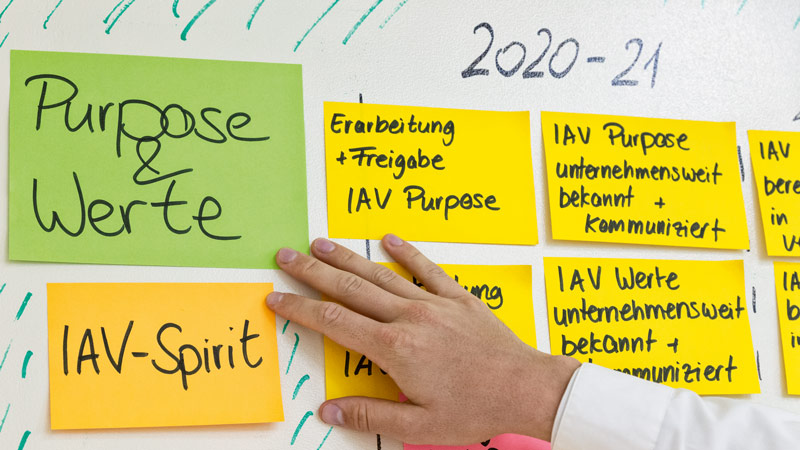Alternative Propulsion Systems: IAV and Massachusetts Institute of Technology Launch Joint Research Project
23.06.2021 —
Berlin. Engineering specialist IAV and the Massachusetts Institute of Technology (MIT) are pooling their expertise for a joint research project for which they are comparing and evaluating innovative drive types based on hydrogen, electrification, hybridization and methane combustion in heavy-duty trucks. The aim of the transatlantic research is to determine the appropriate drive concept according to the respective application purposes and requirements on American and European roads – and thus to reduce the CO2 footprint in heavy-duty transport as much as possible.

IAV is further expanding its applied research in the field of alternative propulsion systems, cooperating with a renowned international research and educational institution. As part of a research project initially finished until spring 2022, IAV and Prof. William Green’s group at the Massachusetts Institute of Technology (MIT) in Cambridge, USA, are comparing and evaluating alternative drive types for heavy-duty commercial vehicles. In addition to electric and CNG drives, the bilateral investigation is focusing in particular on hydrogen combustion and fuel cells.
IAV is contributing its expertise from internal research projects and experimental studies on research engines on real-world consumption, engine and emission behavior. MIT, on the other hand, is supplying information and know-how on specific use cases in the USA, drive cycles and vehicles.
Companies in the field of hydrogen mobility in particular are expected to benefit from the results, especially European and U.S. commercial vehicle and component manufacturers of fuel cells, injectors or fueling systems. “We want to make the knowledge about alternative drive types and especially driving cycles in the U.S. market available to our customers,” says Carsten Rinka, Executive Vice President of Sales at IAV.
«However, the diversity of alternative powertrains requires a high-quality evaluation and optimization methodology. The aim of the collaboration is therefore to select suitable concepts for corresponding requirements and use cases in the commercial vehicle sector – and thus to reduce the CO2 footprint as much as possible.»
— Executive Vice President of Sales at IAV
The cooperation with MIT will give IAV access to relevant information on how commercial vehicle powertrains are used in the U.S. market, based on real-world route profiles and driver behavior. “On this basis, we can then draw a comparison with European drive concepts,” says Rinka. In Europe, IAV is already heavily involved in the Research Association for Combustion Engines (FVV), a global network of companies, research institutes and funding agencies. The exchange of methods also offers advantages for MIT as well. As Prof. Green commented, “IAV’s expertise in detailed engine design and operating strategies for high efficiency has made it possible for us to rapidly accurately answer a much wider range of questions than I had thought possible”.
The initial results of the research project are to be presented to the public in the second half of 2021, with a final report in 2022.
About IAV
With more than 8,000 employees, IAV is one of the world’s leading engineering partners to the automotive industry. The company has been developing innovative concepts and technologies for future vehicles for more than 35 years and generated sales of around EUR 896 million in 2020. Its customers include all major automobile manufacturers and suppliers worldwide. Alongside vehicle and drivetrain development, IAV entered the field of electromobility and autonomous driving at an early stage and is now one of the leading development service providers in these fields. Alongside its development centers in Berlin, Gifhorn and Chemnitz/Stollberg, IAV has further locations in Munich, Sindelfingen and Ingolstadt, among others, as well as in Europe, Asia and North and South America.
- E-Mobility
- Hydrogen & Fuel Cell
- On-Highway Commercial Vehicles and Mobile Machinery

